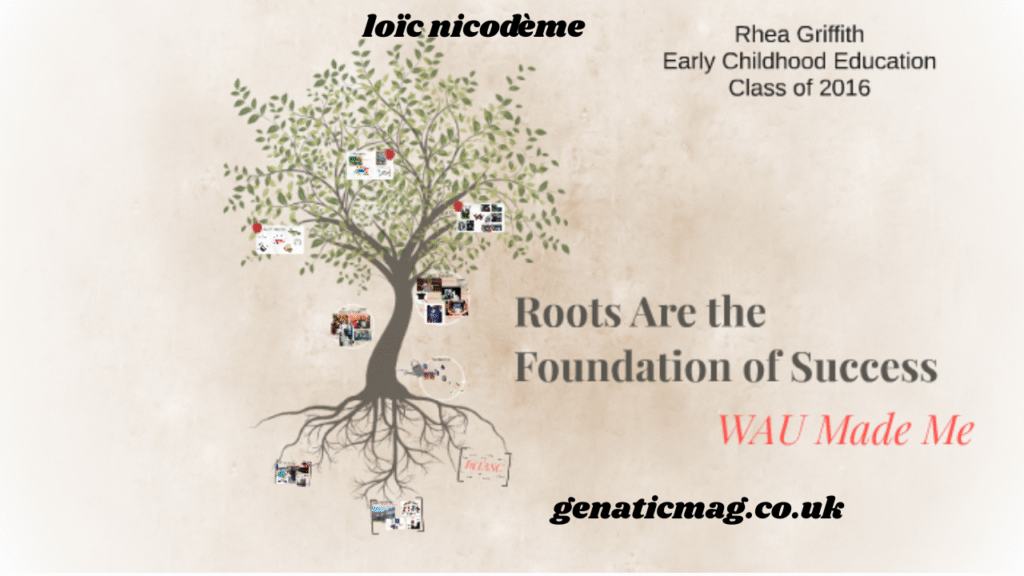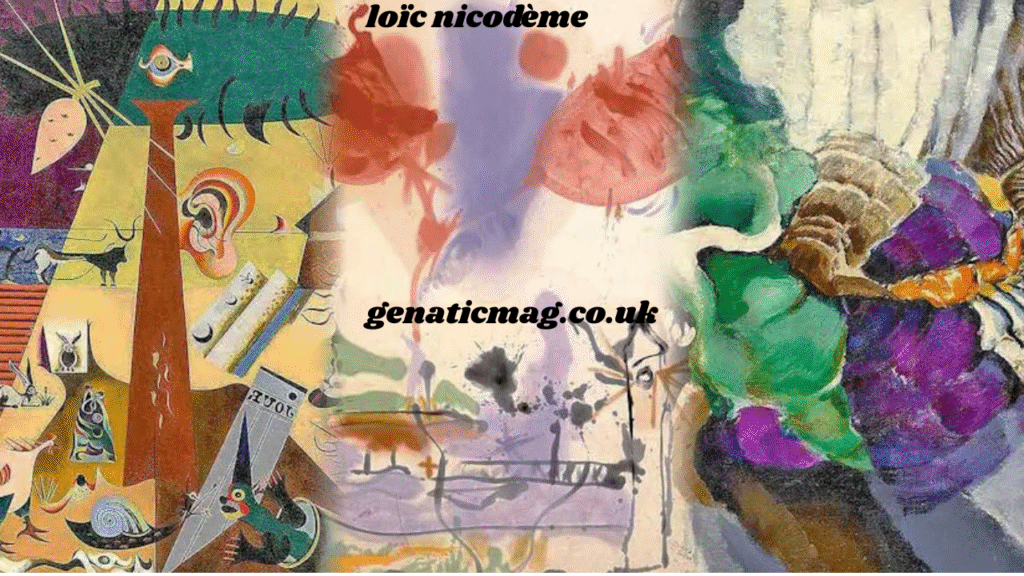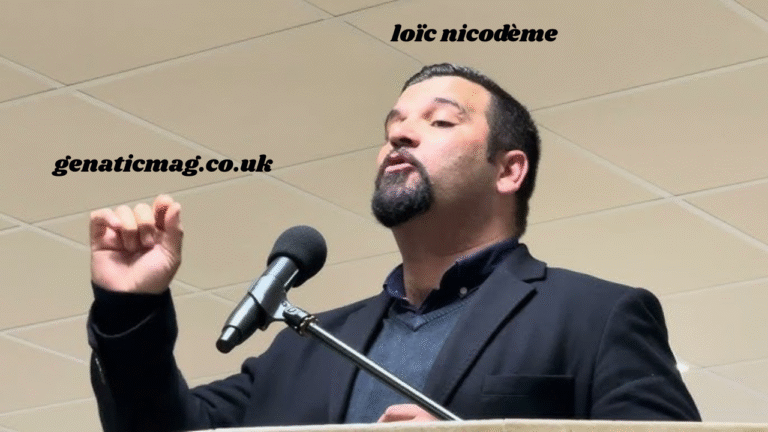Introduction to Loïc Nicodème: A Multifaceted Intellectual Force
Loïc Nicodème is a name that resonates across cultural, academic, and intellectual domains. Often described as a quiet revolutionary in thought leadership and artistic interpretation, Nicodème has steadily carved a space that blends philosophy, literature, and cultural commentary. Despite the relative mystery surrounding certain aspects of his biography, his work and influence continue to inspire scholars, writers, and readers globally. This article aims to delve deep into the figure of loïc nicodème, exploring the many layers of his intellectual contributions and contextual relevance.
Early Foundations and Academic Roots

While specific details about Loïc Nicodème’s early years remain private or elusive, what is clear is that he is a product of rigorous academic environments. Often associated with the French intellectual tradition, Nicodème’s work echoes the density, clarity, and boldness of thinkers such as Michel Foucault and Roland Barthes. Whether through essays, lectures, or cultural analysis, loïc nicodème consistently demonstrates a command of historical narrative, philosophical depth, and theoretical precision.
Many believe that his educational background includes institutions with strong programs in philosophy, comparative literature, and semiotics. His affinity for language and symbolic systems hints at a deep engagement with structuralism and post-structuralism—schools of thought that emphasize the relationship between language, meaning, and culture.
Literary Output: Essays, Critiques, and Editorial Work

Loïc Nicodème is perhaps best known for his written works, which span a range of styles—from scholarly essays to evocative reflections on art and society. His language is often dense yet poetic, rich with layered meaning and intertextual references. These essays frequently address topics such as:
- The politics of memory and representation
- The transformation of identity in postmodern societies
- The intersection of philosophy and everyday life
- Aesthetic theory and critical art practice
One of Nicodème’s distinctive qualities is his ability to connect abstract theory with concrete lived experiences. His essays do not remain confined to academic walls but stretch into galleries, urban streets, and online platforms, making his intellectual work feel vibrantly alive.
Cultural Commentary and Influence in the Arts

Beyond the written page, loïc nicodème has contributed meaningfully to the broader cultural discourse, particularly through his involvement in the visual and performing arts. He is frequently cited in curatorial notes, artist manifestos, and contemporary cultural festivals as a source of philosophical inspiration.
His approach to culture is holistic. Rather than analyzing artworks in isolation, Nicodème places them within ecosystems of power, identity, and history. This lens has made him a favored figure among avant-garde and experimental creators, especially those dealing with themes of marginalization, memory, and resistance.
His public lectures and panels often explore themes such as:
- The politics of visual perception
- Postcolonial aesthetics
- The role of the intellectual in the age of algorithmic culture
- Re-imagining the archive in the 21st century
Language, Identity, and Postmodern Subjectivity
At the heart of much of Loïc Nicodème’s writing lies a fascination with the relationship between language and identity. He explores how narratives are constructed, deconstructed, and weaponized—both historically and in the current moment.
In his framework, language is never neutral. It is imbued with political weight and cultural tension. This awareness leads him to dissect not only spoken or written words but also the languages of images, gestures, and silences. His treatment of identity moves beyond binary definitions, delving into fluidity, intersectionality, and performative dimensions.
For Nicodème, identity is not a fixed category but an evolving construct, shaped by context, memory, and resistance. This philosophical stance places him within a lineage of postmodern thinkers who challenge essentialist notions and foreground the multiplicity of human experience.
Pedagogical Approach and Educational Philosophy
Though not always situated within formal academic institutions, Loïc Nicodème has had a notable impact on education and pedagogy. Whether through guest lectures, workshops, or independently published materials, he promotes a learner-centered approach that values inquiry, critical reflection, and creativity over rote memorization or passive reception.
Nicodème encourages students and readers alike to ask difficult questions, embrace uncertainty, and think beyond disciplinary boundaries. His educational philosophy stresses:
- Interdisciplinarity as a method and a mindset
- Embracing complexity rather than seeking simplified truths
- Cultivating empathy through narrative understanding
- Recognizing the ethical dimensions of knowledge
This commitment to education as a transformative process underlines much of his public work and demonstrates his deep investment in generational exchange and intellectual empowerment.
Public Perception and Intellectual Legacy
Loïc Nicodème occupies a unique space in the public imagination. He is not a mainstream celebrity intellectual, yet his work continues to circulate widely among cultural institutions, art collectives, independent publications, and scholarly circles. This blend of underground reverence and scholarly recognition contributes to his mystique.
Importantly, his legacy is not built solely on authorship but also on influence. Artists, writers, and educators often cite Nicodème as a touchstone for their own explorations. His ideas have quietly but powerfully permeated syllabi, curatorial strategies, social theory, and community discourse across Europe and beyond.
Rather than assert dominance over any particular school of thought, loïc nicodème serves as a catalyst—igniting dialogue, provoking reconsideration, and nurturing more inclusive forms of meaning-making.
The Enigma of Presence: A Private Public Figure
One of the more fascinating aspects of loïc nicodème is the tension between his public intellectual role and his intensely private persona. He rarely grants interviews and maintains a minimal digital footprint. This calculated absence from traditional publicity channels allows his work to speak for itself and insulates it from the noise of viral culture.
In an age where constant visibility often equates to influence, Nicodème’s intentional invisibility is both radical and refreshing. It positions him as a thinker who resists commodification, instead prioritizing the substance and integrity of his intellectual contributions.
Continuing Impact and Future Potential
The relevance of loïc nicodème shows no signs of waning. His frameworks and reflections are increasingly applied to emerging issues such as digital identity, ecological ethics, and global inequality. As more institutions recognize the value of interdisciplinary, reflective, and socially aware scholarship, Nicodème’s thought is likely to find even wider application.
Future generations of artists, scholars, and cultural workers will undoubtedly return to his writings not just for insight but for intellectual companionship in navigating the uncertainties of our time.
Conclusion: Loïc Nicodème and the Power of Thoughtful Resistance
In an era often marked by noise, speed, and superficiality, Loïc Nicodème stands out as a symbol of depth, care, and philosophical clarity. His work resists easy classification, spanning disciplines, themes, and modes of expression. Whether through a powerful essay, a curated exhibition, or a quietly revolutionary lecture, loïc nicodème continues to shape the intellectual and cultural fabric of our world.
He challenges us to see, think, and feel more deeply—to engage with complexity rather than retreat into simplicity. And in doing so, he leaves a legacy that will continue to inspire critical minds for years to come.
Also Read : Marcos Rico Peng, ??, A Visionary Mind Shaping Contemporary Innovation
